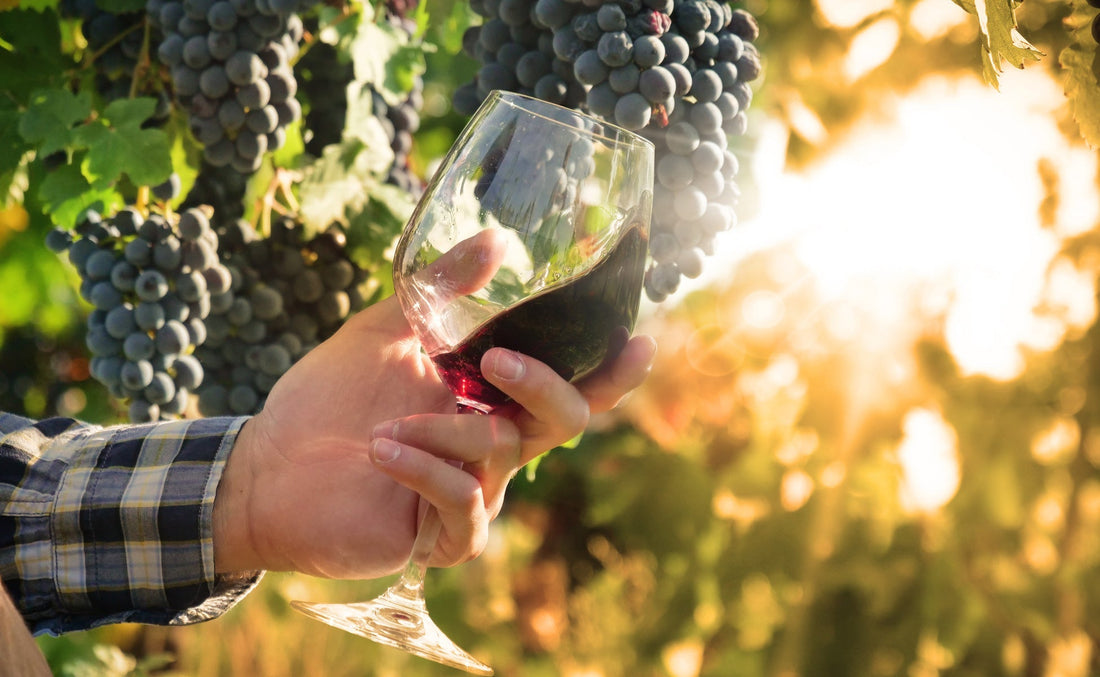
For or Against Organic Wine? A Complete Guide for 2025
When it comes to wine, the debate around organic, biodynamic, and natural bottles is heating up. With growing consumer demand, environmental concerns, and a renewed focus on terroirs, offering organic wines has become more than a trend—it’s a competitive advantage.
In France, organic wine consumption is rising every year while conventional wine sales stagnate. For restaurants, bars, and wine shops, adding organic labels to the wine list is now both a customer experience driver and a market differentiator.
Organic Wine in France: Market Overview & Trends
A Changing Consumption Pattern
- Overall wine consumption is slightly declining (–2% per year, excluding sparkling, IWSR 2024).
- Millennials and Gen Z prefer higher-quality, ethical wines—often 30–35% more expensive than conventional bottles.
- Women and urban consumers are particularly sensitive to organic options.
Key Figures 2023–2025
- 17% of French vineyards are certified organic or in conversion (Agence Bio 2024).
- Over 40% of French consumers buy organic wine at least once a year.
- Demand is growing for biodynamic and natural wines, supported by ecological values and transparency.
The Case for Organic Wine
-
Environmental Benefits
- Major reduction in pesticides and chemical inputs.
- Protection of biodiversity and soil health.
- Enhances the eco-friendly image of restaurants and wine shops.
-
Taste & Authenticity
- Greater expression of fruit and terroir.
- Wines reflect the winemaker’s work more faithfully—perfect for demanding wine lovers.
-
Health Benefits
- Sulfite levels reduced by 10–30% (up to 50% in biodynamics).
- Fewer chemical residues, lower allergy risks.
- A healthier, more respectful way of drinking.
-
A Differentiated Customer Experience
- Guests seek authenticity and meaning.
- Serving organic wine at the right temperature becomes a key factor for satisfaction.
Challenges & Controversies
- Higher Price
- Organic wines cost 20–40% more than conventional ones.
- Many consumers accept the premium for quality and ethics.
- Taste Variability
- Some organic wines may show inconsistencies in taste or acidity.
- Modern winemaking techniques and experience now minimize these differences.
- Vineyard Conversion
- Transitioning requires investment, time, and training.
- Some winemakers hesitate, limiting available supply.
How LeChiller® Pro Elevates Organic Wine
- Keeping the Perfect Temperature
- An organic wine reveals its full aromatic potential only when served right.
- LeChiller® Pro chills or tempers any bottle in under 5 minutes—without compromising quality.
- Preserving the Customer Experience
- Every tasting remains true to the winemaker’s vision.
- Fast service, professional presentation, and direct impact on satisfaction.
- Simplifying Logistics
- Reduced need for cold storage.
- Streamlined service and fewer losses.
- Aligned with the sustainable, responsible philosophy of organic wine.
Recommended Organic Wines for 2025
- With sea urchins: Confidentielle – Figuière, Côtes de Provence (€25.60)
- With beef Wellington: Les Caprices – Domaine Les Carmels 2016, Cadillac-Côtes de Bordeaux (€11.50)
- With salmon carpaccio: Les Dernières Terres 2018, IGP Vaucluse, Les Davids (€10.40)
- With charcuterie: Pettale 2016 – Domaine Leccia, Patrimonio (€30)
- As an aperitif: Cuvée Prestige Rosé – Domaine de Saint Ser, Côtes de Provence Sainte-Victoire (€13)
- With a beef steak: Les Barriques de Garbelle – Domaine de Garbelle, AOC Coteaux Varois en Provence (€18.50)
- With fish terrine: Pumonte 2018 – Domaine d’Alzipratu, Calvi (€22.20)
- With Ossau-Iraty cheese: Auguste 2017 – Château Lafoux, AOC Coteaux Varois en Provence (€16)
-
With pan-seared scallops: Le G de Château Guiraud 2018, Bordeaux Blanc Sec (€15)
Tip: Favor recent vintages to surprise your customers and highlight freshness.
FAQ – All About Organic Wine
Is organic wine healthier?
Yes. With fewer pesticides and less sulfites, it’s a more natural and health-conscious option.
Is organic wine always more expensive?
Often, yes. But the added quality, ethics, and value make the investment worthwhile.
What’s the difference between organic and biodynamic wine?
Organic follows strict regulations. Biodynamic goes further, applying holistic principles and natural cycles.
How should you store an opened bottle of organic wine?
Like a conventional one: cool, away from light and oxygen. LeChiller® Pro helps preserve its qualities.
What’s the ideal serving temperature for organic wine?
- White: 8–12 °C
- Red: 14–18 °C
- Rosé: 10–12 °C
Organic Wine, a Differentiator in 2025
Organic wine is becoming essential for discerning consumers, combining respect for the planet, authenticity, and well-being. For restaurants, bars, and wine retailers, it’s both a business strategy and a customer engagement tool.
With LeChiller® Pro, every organic bottle becomes a unique experience—enhancing your wine list, your service, and your customer satisfaction.

